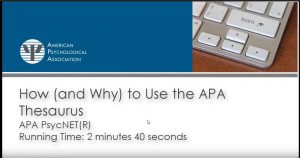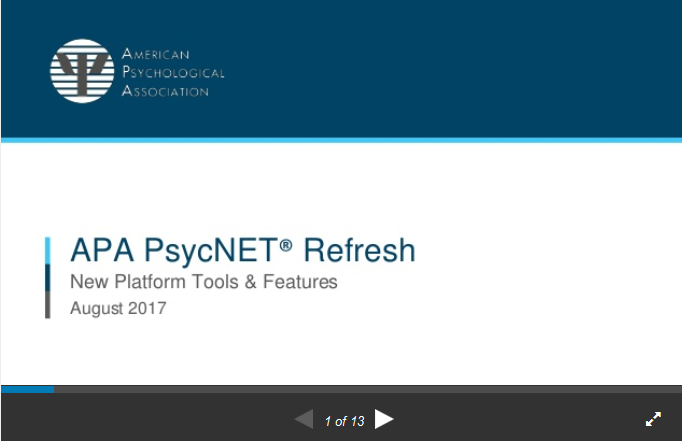Our spring semester lineup of webinars for librarians kicks off next week. If you’re looking to expand your search skills, or just need a PsycINFO refresher, we hope you’ll join us! We offer two different one-hour sessions, both of which include live search demos.
Behind the Scenes of PsycINFO reviews the structure of APA Database records, and covers fields such as Index Terms, Keywords, and Classification Codes.
- Tuesday, March 6 – https://attendee.gotowebinar.com/rt/6761204151904845570
- Wednesday, April 4 – https://attendee.gotowebinar.com/rt/6761204151904845570
Beyond Subject Searching in PsycINFO includes a review of searching for information on tests and measures, and looks at other ways you can use PsycINFO to do more than just locating articles.
- Monday, March 19 (APA PsycNET) – https://attendee.gotowebinar.com/register/838047052145363714
- Wednesday, March 28 (EBSCOhost) – https://attendee.gotowebinar.com/register/8713745487811853570
- Tuesday, April 10 (ProQuest) – https://attendee.gotowebinar.com/register/1916121501714669826
- Thursday, April 19 (Ovid) – https://attendee.gotowebinar.com/register/5923258643795475458
Additional Webinars for Students and Faculty
Looking for sessions for students and faculty, or our APA Style CENTRAL Online Introduction? Please visit our main webinars page for schedules and descriptions.
View Tutorials Anytime, Anywhere!
We also offer a large library of video tutorials. These can help you – and the students, faculty, and researchers you support – become a PsycINFO expert: https://www.youtube.com/PsycINFO



